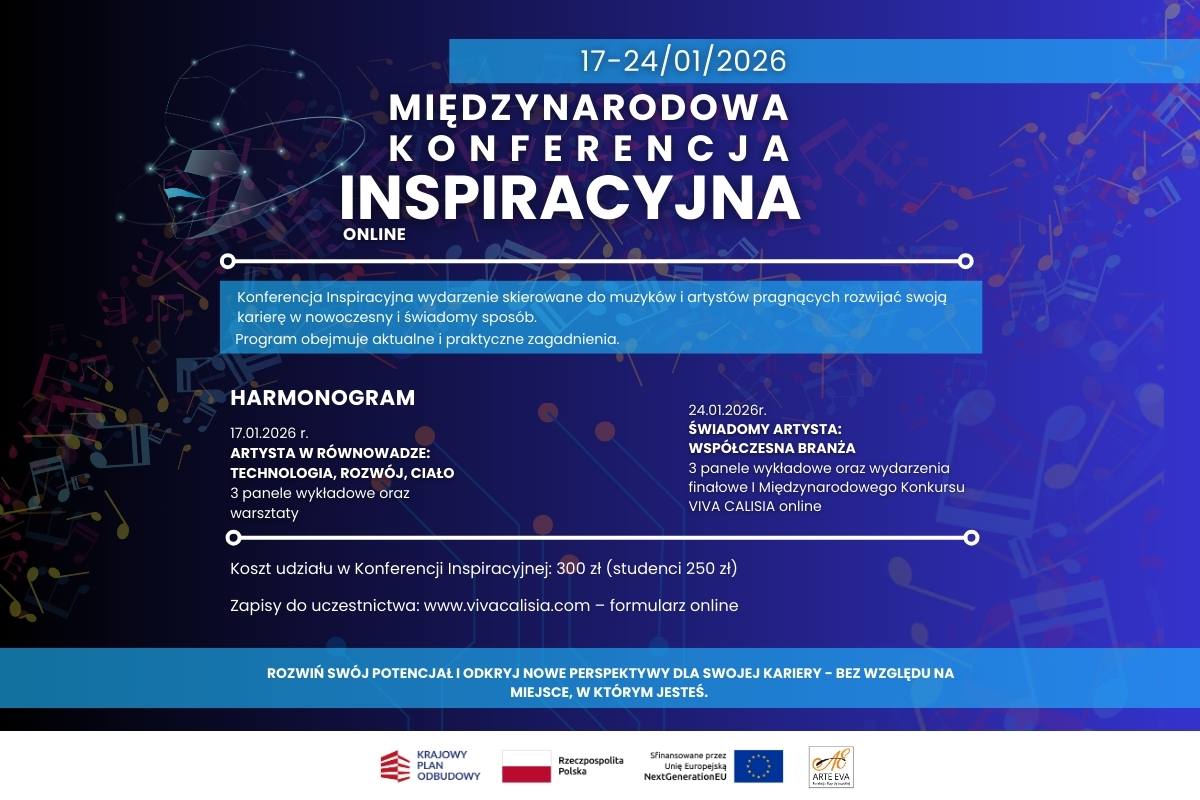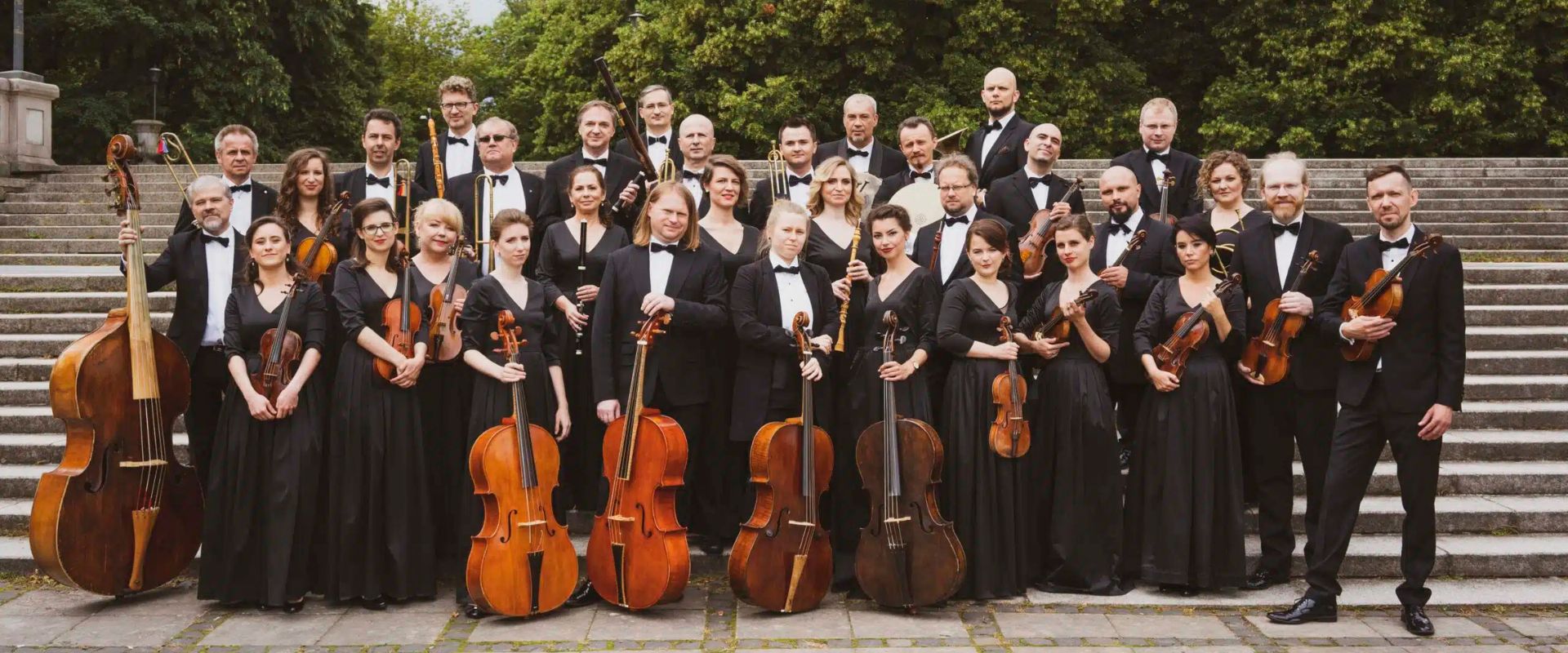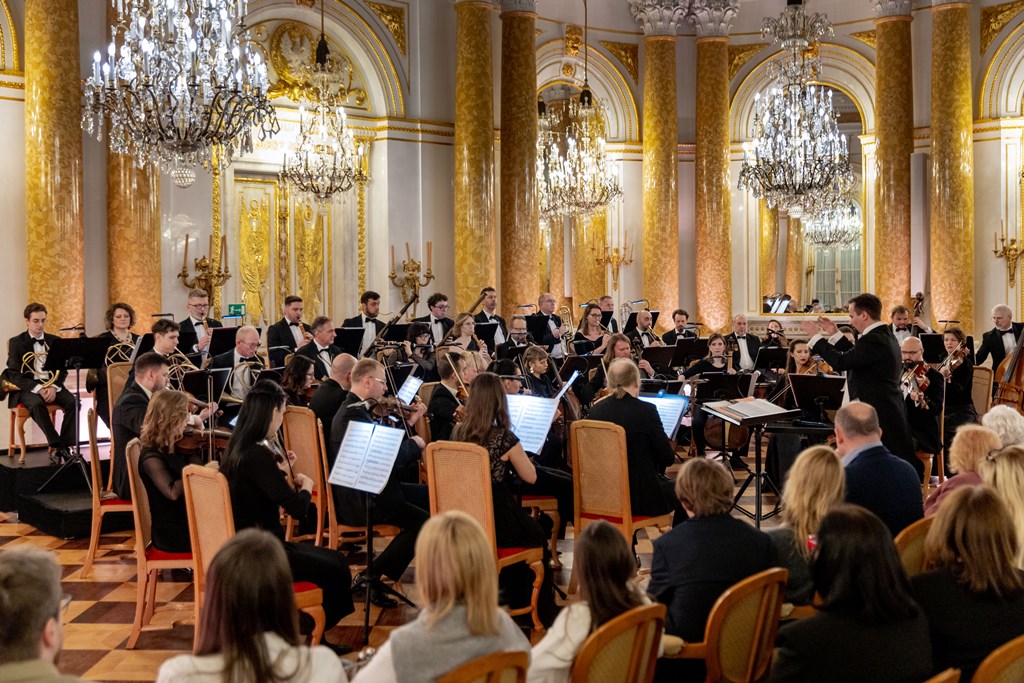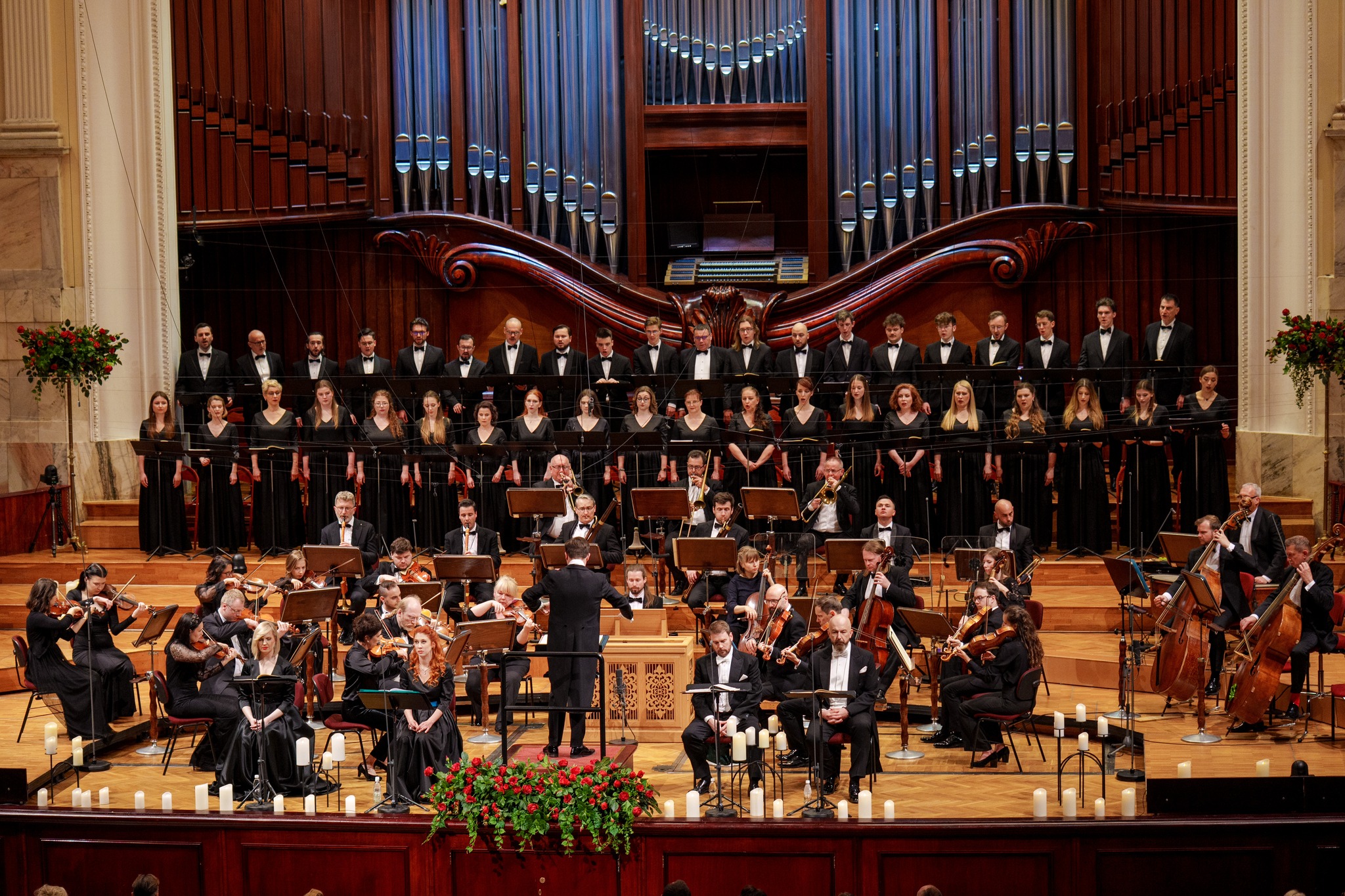 Musicae Antiquae Collegium Varsoviense – history, passion, and the sound of bygone eras
Musicae Antiquae Collegium Varsoviense – history, passion, and the sound of bygone eras
More than six decades ago in Warsaw, the idea was born to create an orchestra that would allow for the rediscovery of music from past centuries. Thus, in 1957, Musicae Antiquae Collegium Varsoviense (MACV) came into being – the first Polish early music ensemble to perform on historical instruments. The orchestra was founded by Stefan Sutkowski, a musicologist, oboist, and cultural activist, who from the very beginning entrusted it with the mission of popularizing newly unearthed relics of Poland’s musical heritage.
Four years after MACV was established, its musicians co-created the Chamber Stage at the National Philharmonic, which in subsequent years was transformed first into the Warsaw Chamber Stage and, in 1971, into the Warsaw Chamber Opera. From the outset, the institution was led by Sutkowski as artistic and managing director. As a result, the Early Instruments Ensemble became an integral part of one of Poland’s most important opera houses.
From its earliest years, the orchestra set its sights on a high standard of performance. Its members studied with leading European teachers specializing in historical performance practice, took part in international projects and recordings, and in this way were able to both follow and shape the latest trends in early music. In the 1990s, the ensemble’s artistic direction was held by harpsichordist, conductor, pedagogue, and distinguished interpreter of early music – Johann Jakob Froberger in particular and the French harpsichordists – Władysław Kłosiewicz, followed by chamber musician, harpsichordist, and conductor Lilianna Stawarz. In later years, the shape and character of the ensemble were influenced by, among others, Austrian conductor Friedrich Haider, conductor and composer Marcin Sompoliński, and violinist Stefan Plewniak. The artistic development of MACV was also significantly enriched through collaborations with musicians and conductors such as Wieland Kuijken, Jean-Claude Malgoire, Paul McCreesh, and Michał Maciaszczyk.
Today, the orchestra’s repertoire presents a panorama of the development of opera and vocal-instrumental music. It spans from “Euridice” by Jacopo Peri, the earliest surviving opera, through the works of Monteverdi, Purcell, Lully, and Rameau. MACV also performs operas by Handel, Hasse, and Scarlatti. At the very heart of its repertoire, however, lies the music of Wolfgang Amadeus Mozart – the orchestra is among the few ensembles worldwide to include all of the composer’s stage works in its repertoire. Since 2019, the ensemble has also entered into bold dialogue with jazz. Collaborations with Krzysztof Herdzin, Marcin Masecki, Leszek Możdżer, and Andrzej Jagodziński have resulted in the Jazz with MACV series, blending Baroque instruments with modern improvisation.
The MACV discography includes opera recordings, works of the Polish Baroque, and contemporary projects. Among the most important releases are La Luce with Simone Kermes, “Mozart Overtures” conducted by Radosław Kamieniarz, and Leszek Możdżer’s bestselling album “Composites,” awarded the Grand Prix Jazz Melomani and named Concert of the Year 2023 in a Jazz Forum readers’ poll.
The ensemble’s most recent release is Wolfgang Amadeus Mozart’s “Requiem.” Left unfinished by the composer, the funeral mass was completed for the first time by his pupil and collaborator Franz Xaver Süssmayr. The recording features Dorota Szczepańska (soprano), Maya Gour (alto), Benjamin Hulett (tenor), Rafał Siwek (bass), the Vocal Ensemble of the Warsaw Chamber Opera, and MACV under the baton of Adam Banaszak, the current music director. The album was produced in collaboration with DUX, a Polish record label specializing in classical music.
Reviewing the release, Remy Franck – editor-in-chief of Pizzicato magazine and member of the jury of the International Classical Music Awards (ICMA) – emphasized that The performance is highly emotional, conveying both moments of despair and of introspection (…). After the heartfelt Requiem section comes a Kyrie sung by the choir in a moving and imploring manner. Then follows a pressing Dies Irae, a lively Domine Jesu, a magnificent Sanctus, and a wonderfully expressive Agnus Dei (…).
In the 2025/2026 season, Musicae Antiquae Collegium Varsoviense will perform not only in Warsaw but also in Gdańsk, as part of the ORGANy PLUS+® 2025 festival. The orchestra’s full season repertoire can be found on the Warsaw Chamber Opera.






